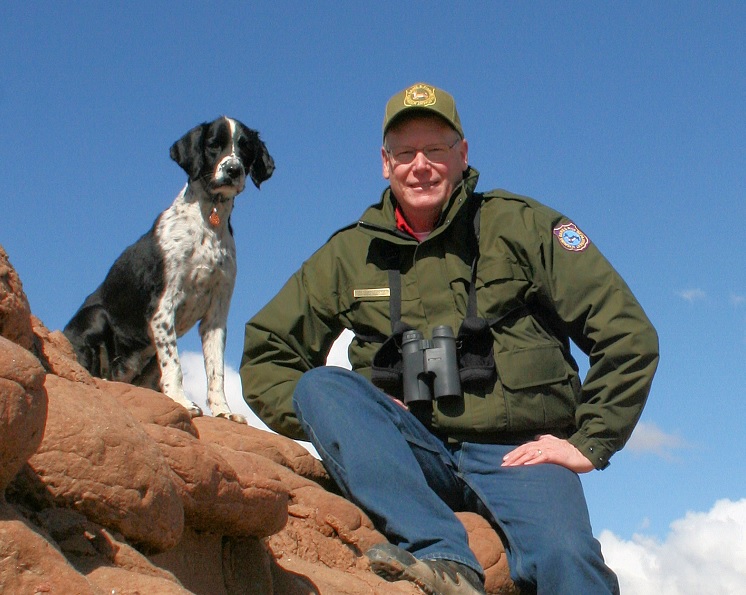
When Tom Christiansen signed up for Howard Wiegers' Wildlife Management course in 1981, he didn't think much of it.
"(It) was the first wildlife class I took," Christiansen said. "At the time, I viewed it as an elective that would support my then-goal of being an outdoor writer."
But for Christiansen, the course ended up being more than your run-of-the-mill elective.
"It was a life-altering experience that resulted in my adding the natural resources and wildlife management major to my nearly complete agjournalism dual major," he said.
This experience unfolded in the days before the School of Natural Resources was a school and the fisheries and wildlife major was a stand-alone major. Even so, Christiansen found ways to foster his love for the outdoors.
"I was very involved with the UNL Wildlife Club, serving in various offices including president," he said. "My UNL education and involvement in the Wildlife Club provided both the ecological foundation and, through the Wildlife Club activities, much of the experience needed to start a career in wildlife management."
Like most recent grads, that career began in a humble fashion.
"I was fortunate, as were several other UNL wildlife students, to have a UNL alumni mentor working for the Wyoming Game and Fish Department, Mr. Steve Kilpatrick," Christiansen said. "Steve hired me for my first job after graduation."
The job was a temporary, nine-month gig involving a mixed bag of responsibilities.
"This job included conducting habitat improvements such as controlled burns and wetland development, surveys for waterfowl, elk and bighorn sheep, and glamorous tasks like fixing fences and cleaning public outhouses," he said.
The department would go on to hire Christiansen as an elk feeder in Jackson Hole, which meant a winter living in a cabin accessed only by snowmobile and feeding several thousand elk using sleds and teams of draft horses.
"These jobs helped me learn the culture of the agency and prepared me to succeed in passing the various tests and interviews required to advance to a permanent position as a wildlife biologist," Christiansen said. "Then and now, only a small proportion of those taking the exams succeed in being offered permanent positions."
Indeed, all of those experiences paid off; in 1987, Christiansen was selected as the biologist for the Green River – a position he filled until 2004 when he was appointed as the department's sage-grouse program coordinator.
"This position is unique in the agency in that it is the only single-species biologist position," he said.
This special position exists because of the potential for the species to be listed as a threatened or endangered species under the auspices of the Endangered Species Act. Moreover, such a listing would result in economic impacts totaling upwards of $50 billion in western states, particularly in Wyoming, Christiansen said.
"My work includes monitoring sage-grouse populations, providing management recommendations to agency administrators and the Wyoming Governor's Office, working across boundaries with colleagues from other states and agencies, and administering eight local citizen-based working groups tasked with developing local conservation plans for sage-grouse," he said.
While Christiansen's position comes with challenges – like bringing together groups of people with opposing viewpoints – he said that knowing he's making a difference is what really matters.
"The most rewarding aspect of my position is knowing that what I am doing is part of something really important," he said. "It is meaningful conservation on a large scale. The ecological and economic ramifications of sage-grouse conservation are huge."
Christiansen will be returning to UNL on Nov. 20-21 to participate in Alumni Masters Week, a program sponsored by the Nebraska Alumni Association, Scarlet Guard and the Chancellor's Office. 2014 marks the 50th annual Alumni Masters Week. Ten outstanding alumni and 56 past alumni masters will be on hand for the celebration.
Any interested students, faculty and staff are encouraged to visit with Christiansen during these times:
November 20
1:45 – 2:45 p.m. Meet with SNR faculty and staff (HarH 207)
3:00 – 4:00 p.m. Speak with UNL Wildlife Club (HarH 228)
November 21
10:30 – 11:30 a.m. Meeting with SNR graduate students (HarH 901)
12:00 – 1:00 p.m. SNR Professional Development Seminar (HarH 901)
1:00 – 2:00 p.m. Additional time to visit with students (HarH 901)
2:15 – 3:15 p.m. Meet with SNR faculty and staff and staff from Nebraska Game and Parks Commission (HarH 901)
— Mekita Rivas, Natural Resources